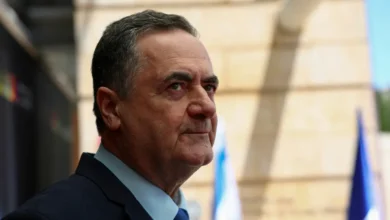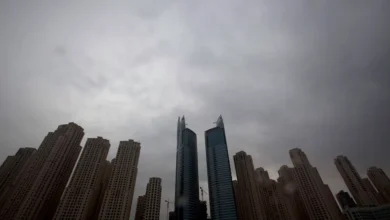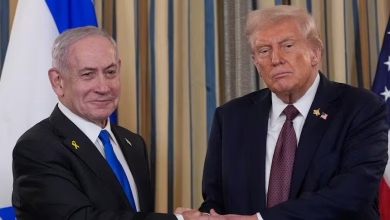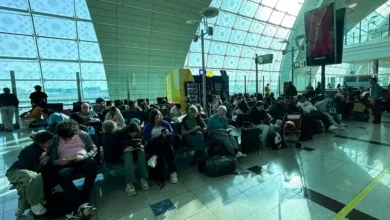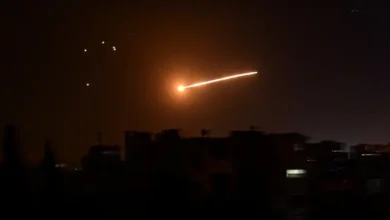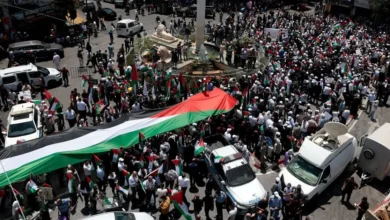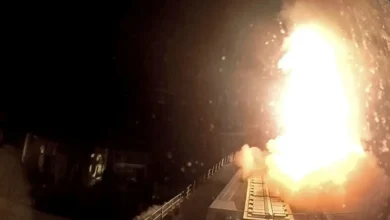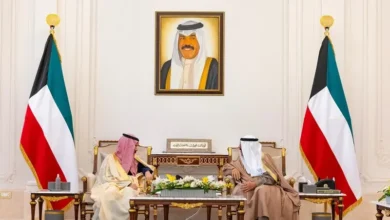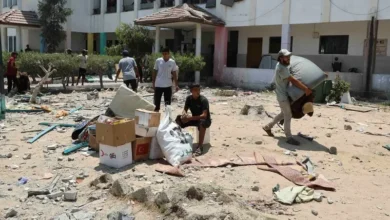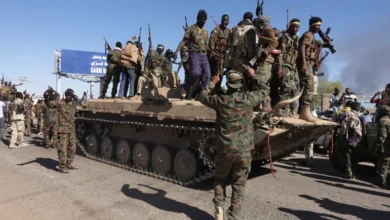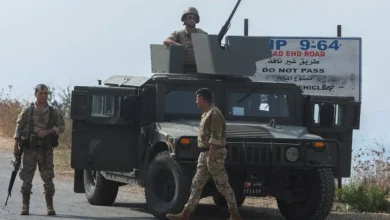What Trump’s win could mean for Lebanon
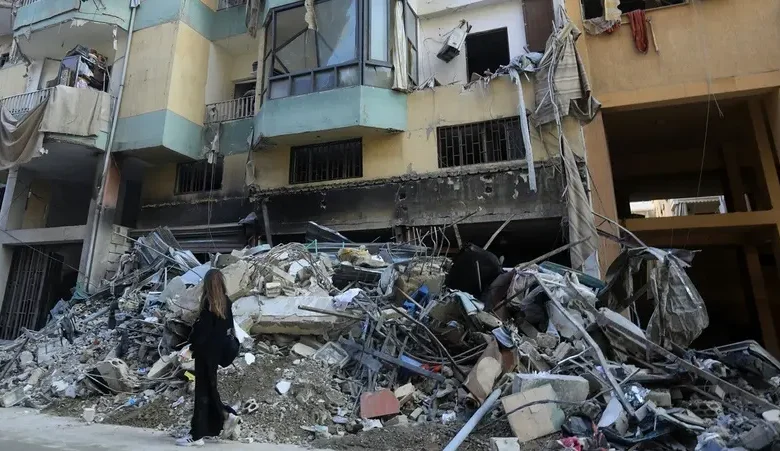
Donald Trump has achieved a remarkable political comeback, following a campaign marked by dark rhetoric that has deepened the polarization within the US. Yet, the implications of this election resonate far beyond American borders.
Trump has vowed to redefine US relationships with both allies and adversaries, prompting questions about the potential impact of his foreign policy, particularly in the Middle East amid expanding conflicts.
The most pressing issue is the ongoing war between Israel and the Iran-backed militant groups in Gaza and Lebanon, where over 43,000 Palestinians and 3,000 Lebanese have been killed in heavy Israeli airstrikes.
While Trump has promised to bring “peace” to the region, implying he would end the Israel-Hamas and Israel-Hezbollah conflicts, he has not detailed a clear path toward a ceasefire.
He has repeatedly asserted that his “maximum pressure” campaign against Iran, which funds both groups, during his first term would have prevented Hamas from launching the October 7 attacks.
“If I were president, that war would have never started. You wouldn’t have all those dead people and demolished cities and areas. We wouldn’t have had October 7,” he said in an exclusive interview last month.
During his time in office, Trump’s administration withdrew the US from the Iran nuclear deal (JCPOA), reimposed and escalated sanctions on Tehran and authorized the drone strike that killed General Qasem Soleimani, the commander of the Quds Force, Iran’s elite military unit.
Analysts now argue that it remains to be seen how campaign promises will translate into presidential actions.
“There is likely to be a distinction between what a candidate says in the campaign trail and what they are able or interested in doing once in power,” said Matthew Levitt, former deputy director of the US Treasury’s intelligence office and author of a book on Hezbollah.
“President-elect Trump has made several conflicting statements when it comes to Gaza and Lebanon, and his behavior is famously unpredictable,” he said.
Uncertainty looms over Lebanon
In Lebanon, many believe that a Trump victory will not alter the unwavering US support for Israel. There is also a widespread sense that a Hezbollah-Israel ceasefire remains unlikely in the near term, particularly during the US transition period.
Hezbollah lawmaker Ibrahim al-Moussawi told Reuters on Thursday that the group welcomes any effort to stop the war in Lebanon but does not pin its hopes for a ceasefire on a particular US administration.
“It might be a change in the party who is in power, but when it comes to Israel, they have more or less the same policy,” said Moussawi.
“We want to see actions, we want to see decisions taken.”
Massad Boulos, a Lebanese-American billionaire and father-in-law to Trump’s daughter Tiffany, said the president-elect would bring peace to Lebanon.
“Trump is known for keeping his promises, and he pledged to end the war and destruction in Lebanon and contribute to its rebuilding,” Massad, who played a key role in the election campaign to court Arab-American voters, told Lebanese broadcaster MTV.
“He will begin working on that immediately.”
Analysts, however, say that achieving peace is far more complex. The key players in the conflict, Israeli Prime Minister Benjamin Netanyahu, who faces internal political pressures, and Hezbollah hold significant sway over the course of events. This suggests that Trump might face challenges in containing or resolving the hostilities.
“One thing is certain: Neither the war in Ukraine, nor those in the Middle East will be solved in a day,” noted Levitt.
A possible move could be for Trump to intensify pressure on Iran to withdraw its support for Hezbollah, aiming to limit Tehran’s influence in Lebanon in return for potential sanctions relief or protection against attacks on its nuclear facilities, said Imad Salamey, an expert on Lebanon and a senior Middle East policy advisor at the Lebanese American University.
“He is likely to recognize the interests of Lebanese-Americans who backed his election campaign, addressing their concerns by endorsing efforts to stabilize Lebanon,” he told Al Arabiya English.
For the past year, Israel and Hezbollah have been exchanging tit-for-tat attacks after the Lebanese armed group established a “support front” in southern Lebanon in solidarity with its ally, Hamas. The fighting escalated into full-blown warfare in September when Israel broadened its focus from combatting Hamas in the Gaza Strip to securing its northern border.
Israel’s air campaign, marked by heavy bombardment, led to the deaths of Hezbollah’s leader Hassan Nasrallah and most of the group’s senior commanders. The offensive has devastated towns near the border and inflicted widespread destruction in neighborhoods within Beirut’s southern suburbs, known as Dahiyeh, as well as vast parts of the Beqaa Valley, leading to civilian casualties and damaged infrastructure.
On October 1, Israeli ground forces pushed into southern Lebanon. Despite this, Hezbollah is still firing hundreds of rockets into Israel. The group said on Friday it targeted a naval base near the Israeli city of Haifa with missiles, the second such attack in less than 24 hours.
Efforts to bring a diplomatic end to the conflict have stalled. Netanyahu on Tuesday appointed Israel Katz as defense minister, who vowed to defeat Hezbollah so people displaced from northern Israel could return home.
Will Israel be emboldened after Trump’s win?
Celebrations erupted in Tel Aviv on Wednesday, with Netanyahu among the first world leaders to congratulate Trump on what he called “history’s greatest comeback.” This reaction could fuel concerns over further escalation as Israel ramps up its campaign in Gaza and Lebanon and braces for a possible Iranian retaliatory attack.
The Biden administration – including Vice President Kamala Harris – is viewed as having tried to moderate Israel’s military response in Gaza, Lebanon and Iran following the Hamas-led attacks on southern Israel last year.
In contrast, Trump’s presidency is remembered for its staunch pro-Israel policies, including recognizing Jerusalem as Israel’s capital and relocating the US embassy there from Tel Aviv, endorsing Israeli sovereignty over the Golan Heights and adopting a hardline stance on Iran.
Trump’s administration also brokered the Abraham Accords in 2020, agreements that normalized relations between Israel and four Arab nations: the United Arab Emirates, Bahrain, Sudan and Morocco. He has expressed plans to expand these accords if re-elected.
Some see that a second Trump term could embolden Israel to pursue its objectives without restraint.
Trump has offered support to Netanyahu in Israel’s military actions against Hamas in Gaza and Hezbollah in Lebanon, telling him in a recent phone call to “do what you have to do.”
“There is an indication here that Trump is urging Netanyahu to ‘finish the job’ in Gaza and Lebanon before his inauguration,” noted Salamey.
This could be seen as Netanyahu’s opportunity to secure a swift diplomatic victory for the Republican president.
